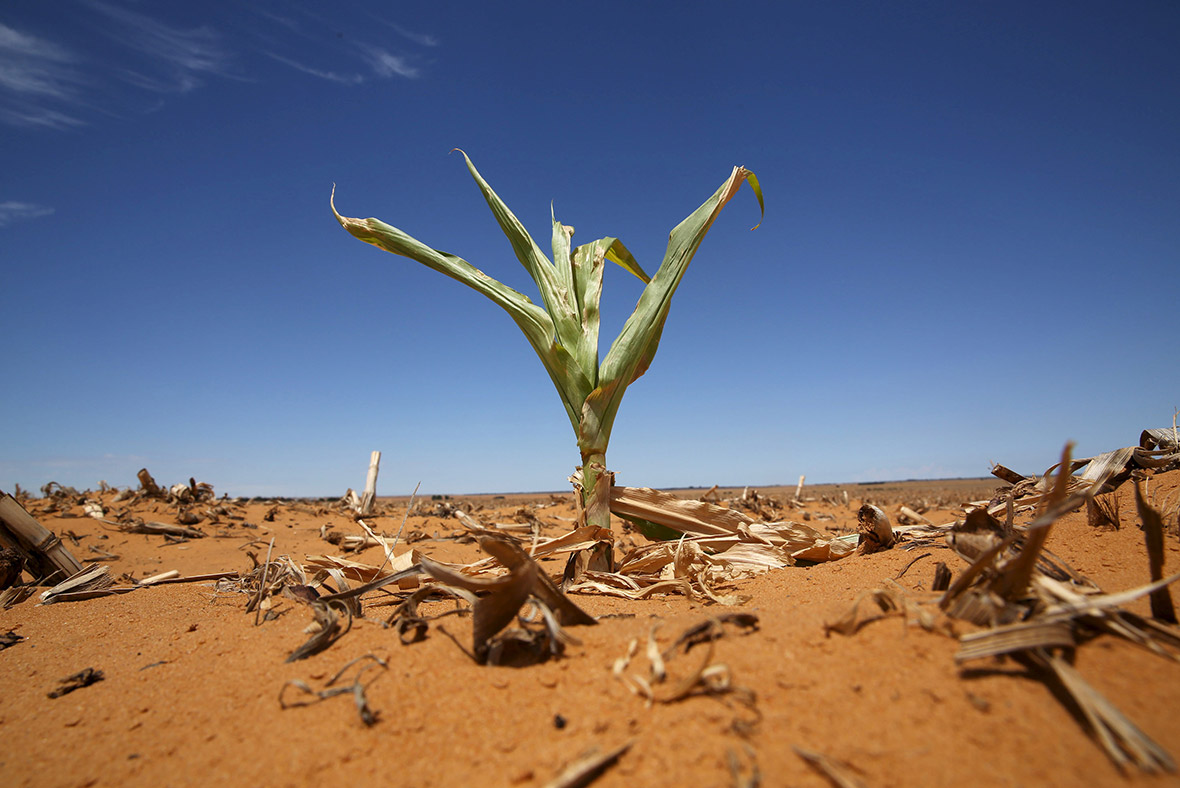South Africa: Crops fail and people die from heatstroke as worst drought on record continues
South Africa is in the grips of a severe drought that shows no sign of abating. 2015 was the country's driest year since records began in 1904. At least 11 people died of heatstroke as temperatures in North West province exceeded 40C during a week-long heatwave in January 2016. The South African Weather Service has announced that 32 temperature records have already been broken this year.
Weeks of extreme heat have scorched crops and grazing land, forcing livestock owners to kill or sell their animals. The carcasses of cattle that have succumbed to hunger and thirst litter barren, dusty fields.





Many farmers in the northern Free State province, a key maize growing area, have not planted as they were waiting for the rains, which didn't come. Maize is a staple food in southern Africa, particularly among lower income households. South Africa is usually a maize exporter, but it may need to import as much as five million metric tons this year, roughly half of its requirements.
Analysts say the cost of maize imports will be a big burden on a country already facing a weak currency. "We will have to import about R12bn (£500m, $710m) worth of maize," said agricultural economist Ernst Janovsky. The rand has weakened as much as 18% against the dollar since mid-December, after President Jacob Zuma changed finance ministers twice in a week, which triggering selling by investors worried about future government policy.
People living in rural drought-affected areas are suffering acute water shortages. Many women walk long distances to collect drinking water, and do their laundry in puddles or stagnant drying-out ponds. Residents of Senekal, a small town in the rural Free State province, queue overnight as they wait for their daily water ration to be brought in by trucks. Those who can't wait up to ten hours in a line, however, are forced to buy water at premium prices. In some areas, children are drinking sewerage water out of desperation.


The crisis could prove a mortal blow to the presidency of beleaguered ANC leader Jacob Zuma. Increasing dissatisfaction with Zuma's leadership has reopened racial rifts in the country. At the end of 2015, people took to the streets of Pretoria, Cape Town, Port Elizabeth and Johannesburg, insisting that corruption has worsened since Zuma came to power in 2009. The 'Zuma must fall' hashtag spread quickly on social media.



The drought is a sign of a changing climate that the whole region must prepare for, say experts. The El Nino weather phenomenon has returned to southern Africa, marked by delayed rainfall and unusually high temperatures. The environmental effects of El Nino are expected to last until at least 2017, affecting the food security of 29 million people due to poor harvests, according to a World Food Programme report.
© Copyright IBTimes 2025. All rights reserved.






















